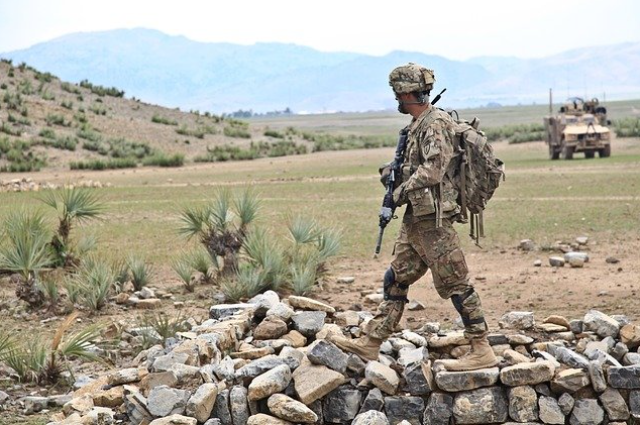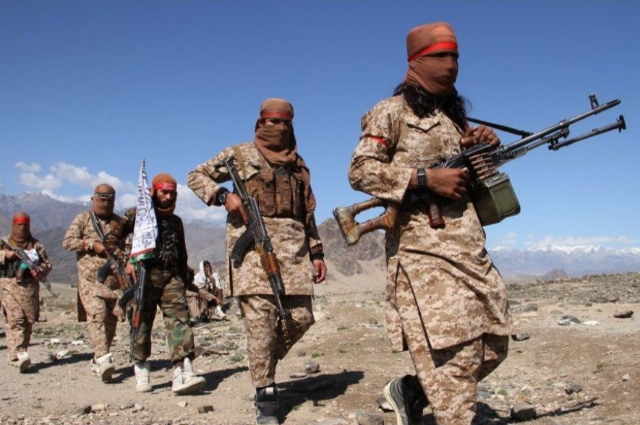
Afghanistan, the seventh poorest country in the world and mostly relies on aid, now suffering from both governing process and a deteriorating economy. Its economic prospects look even more bleak and the unites states have frozen more than nine billion dollars of Afghanistan's international reserves held in it’s central bank. The country where agriculture is one of the main sources of income now requires much of it’s adequate foodstuffs from outside. Inflation has been accelerating and energy prices are raising heavily. When the Taliban began to control the nation's border posts and key transit hubs disrupting supply chains, prices for basic food items and fuels increased substantially. Government revenues fell short of budgeted levels of the year. Government profits are decreasing day-to-day due to the disruption in trade. As the Taliban took over the governance in the country investors, who feared of the coup will affect adversely, abstained from markets. A large number of wealthy ex-pats who returned to Afghanistan and steadily improved the economy seemed there to be not liveable.
The nation’s economy was not well before the invasion of the Taliban. Nearly half of the population was already living below the poverty line. However, when the group came into power, things got extremely worsened. Not only did the arrival of the Taliban bring along reductions in the economy of Afghanistan but also the pandemic has also a vital role in bringing deterioration. The third wave of Covid 19, started in April and the highest infection exhausted medicines and equipment the country has and resulted in the urgency of immediate medical assistance from other countries. Even The major countries are going closely to get vaccinated above half of the population, less than 5 percent of the population only vaccinated in Afghanistan.
The pandemic retarded markets and disrupted international trade. It made people always stay at home and caused a nationwide curfew and absence of service. Both the pandemic and the political coup by the Taliban lead the nation to deteriorate its economy. Now, Afghanistan has to recover by Taliban lead the nation from both challenges through exceptional regulations and policies.
Sources and revenues of Afghanistan:
It should be noted here that Afghanistan has many possibilities of revenues as it faces economic recession simultaneously. It is essentially a pastoral country. Agriculture and animal husbandry, mainly consisting of subsistence farming and pastoral nomads are, in more times, the most important elements of the gross, a domestic product of the country accounting for nearly half of its total value. Its arable land accounts for approximately one-eighth of the total area. But only half of this area is cultivated annually.
Wheat is the most important crop in Afghanistan followed by rice, barley, and cotton. There is also the finest orchard farming like fruits, pomegranates, grapes, sweet Mellon, and mulberries. Apricots, apple figs, and peaches are also cultivated. Fruits and nuts are important exporting items of Afghanistan. Wheat and other crops are used for both domestic and export needs. Animal husbandry produces meat and dairy products for both self-consumption and export like carpet weaving. Karakul and wool are such famous two products. About two-thirds of the annual milk production is from cows. The rest are from sheep and goats. Besides agriculture, natural vegetation has also important in the land of Afghanistan. Forests cover 3 percent of the total land area and are found mainly in the Eastern part of the country and on the southern slopes of the Hindu Kush the nuts of which are a traditional export.
An extensive survey has revealed the existence of a number of minerals of economic importance. One significant discovery was the deposit of natural gas with large reserves in Sheboygan near Turkmenistan. The Khvajoh Gagerdok and Yasim ran fields were major producers with storage and refinery facilities. However, Afghanistan’s energy resources including its large reserves of natural gas remain untapped and fuel shortage is chronic. Further, high-grade iron has been discovered in hajjgak: North West of Kabul. Copper has been mined at Ggnak. Uranium has been identified in the mountains near Khvajoh Rewash East of Kabul. All these resources and financial products which Afghanistan had indicated to the nation can recover from the recession.
Unstable government as the chief cause of the collapse:
Since the kingdom of Afghanistan has been declared as an independent country, no stable government has not been recorded. In 1973 Muhammad Rahoof Khan, supported by soviet trained Afghan army officers seized power from the King in a bloodless coup. He introduced a wide array of reforms that sought to modernise and abolish most traditional and religious structures. Whereas it leads to having thoughts of other governments among the Afghans which will value their traditional culture and religious stricture. Thus, following the withdrawal of the Soviet Union, the governance of Afghanistan was dominated by the Taliban, an ultra Conservative and religious faction. When it came into power the group gave lesser consideration to networking and excluded women from the educational and public sectors. It is alleged that the group provided sanctuary During their rule from 1996some terrorist groups like Al2001 for Qaeda and it paved the way to have open combat from us to oust the Taliban.
After the September attack of 2001, the US military toppled the Taliban and focused on reconstruction and nation-building of Afghanistan. The absence of stability in the governance of Afghanistan brought out less development and deteriorated the economy. Beginning in 2005, the Taliban reasserted its presence with new tactics modeled on those being used by insurgents in Iraq. Taliban sustained their existence by donations from individuals and charities and trading in opium. Opium trading became soon an important source of income for the Taliban. Gradually it began to capture border posts and collect the taxes which were the major source of revenues of the government. Later in August 2021, the Taliban seized major cities including Kabul, The capital city. Alleged corruption and life-threatening circumstances the president had undergone cleared the way for the takeover. How the group which once abandoned networking systems can reconstruct the nation in the period of a pandemic where all services are carried out online. About 80 percent of Afghanistan’s economy is informal and dominated by women. Since 2001, three million girls have enrolled in school, and on average education has increased from six to ten years. Then how a government can rule which wants to preclude women from public matters. Hence, Afghanistan needs alternative and sophisticated policies to rebuild the nation.

Formulas the state has to get away from the downturn:
Even though Afghanistan has a wide array of financial products and services, the prominent source of income is international aid since its establishment. Donations from the United Nations, World Bank, Pakistan, India, and Middle East countries and from us since 2001 have put forward the economy of Afghanistan. Between 2001-2009 just over 28 billion in humanitarian and reconstruction assistance to Afghans was appropriated by US Congress. More than half the money was spent to train the Afghan force. Before the Taliban takeover in August, Afghanistan’s fragile economy had been kept afloat by foreign aid over the past twenty years.
Right now, when assets of the country are frozen and developments are paused the economy is breaking down with closed banks and the absence of essential services, such as health care suspended in many places, Afghanistan is much needed to rely on aid. Mr. Gutters, the secretary General of Unite nations argued that “we need to find a way to make the economy breathe again”. He requires the outsiders to donate as much as the nation needs to save its economy from being deteriorated. Mr. Gutters said that Un agencies and other Non-government organisations are in a ‘race against time" to deliver life-saving aid and prepositions supplies ahead of winter.
In September alone, more than 3.8 million people received food assistance, treatment for acute malnutrition, and 32,000 people received non-food items including blankets and warm clothes for winter. However, the donations provided by un agencies are not sufficient. While the winter is coming close, people need a lot of food items and blankets. Afghanistan now has to import much of its foodstuffs from Pakistan. India is also in front of providing financial and non-financial assistance to Afghanistan. Prime minister Narendra Modi conveyed that every Indian feels the pain of afghan people facing hunger and malnutrition. India has reached out to Pakistan for sending food grains to Afghanistan through the land route. Highlighting that over the last two decades, India has contributed significantly to the development of Afghanistan, Mr. T.s Tirumurti, the Indian ambassador to the United nation, said that India is willing to coordinate with other stakeholders to work towards enabling the expeditious provision of much-needed assistance to the people of Afghanistan.
As being 80 percent of Afghan’s economy is informal and dominated by women, it is compulsory for the Taliban to empower women's education and ensure their participants for economic growth. Since 2001, three million girls have enrolled in school and, on average, education has increased from six to ten years. “ Without them, there is no way the Afghan government and society will recover” Un chief upheld. Therefore the Taliban has to keep their promises to women and girls and fulfill their obligations under international human rights and humanitarian law. When the Taliban government first came into Afghanistan, the group ruled out the networking systems. At the time, when the pandemic proved the significance of technology and the world shrunk into networking, how a government can ban Internet facilities throughout the country. The consequences are unimaginable. Though, the government has to give much importance to networks and technologies. For the proper regulation of online ways of livelihood and government process, it has to appoint sufficient advisers and employers.
Freedom of speech and expression and other human rights should be never deprived of to apprehend inadequacy of government and what formulas must be brought along. Manufacturing based on agricultural and pastoral Row materials should be redressed. The government must provide aid and policies for the development of the textile industry. Traditional handicrafts including carpet weaving which past times accounted for a fair proportion of the country’s export earnings have to be restarted as it was earlier. Fine relations with contracts on trade and export and import with outsiders should be kept always for the increment of revenues. Primarily the state must join international powers to combat terrorist groups to free the nation from bloody land.
